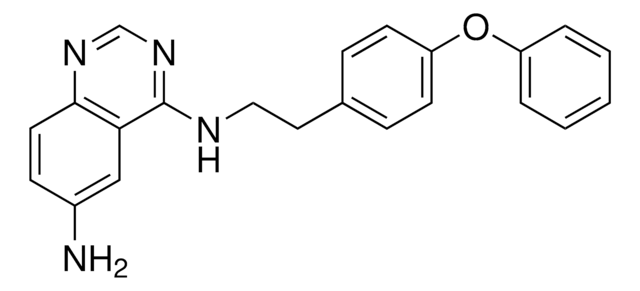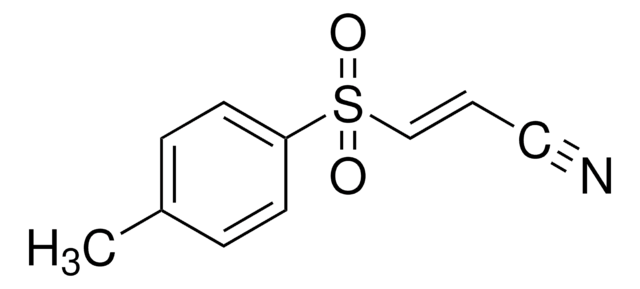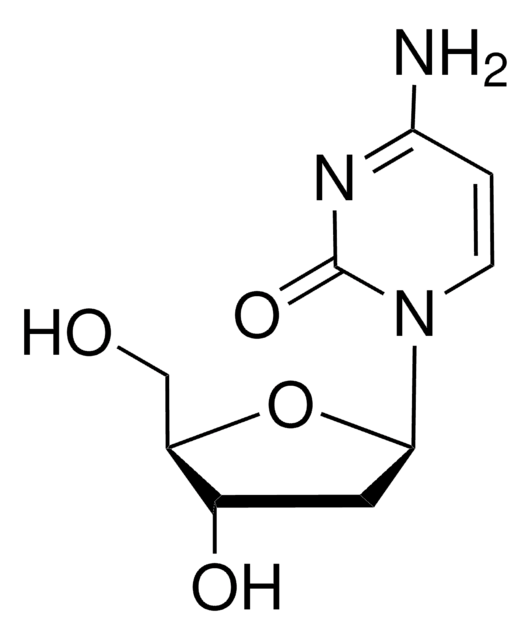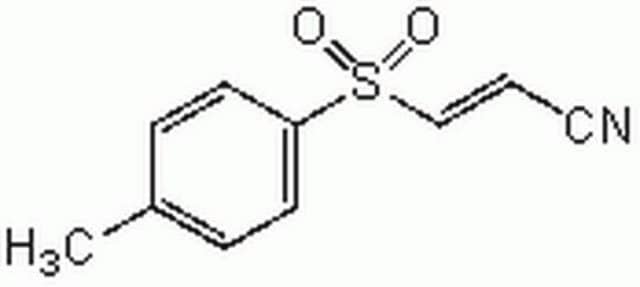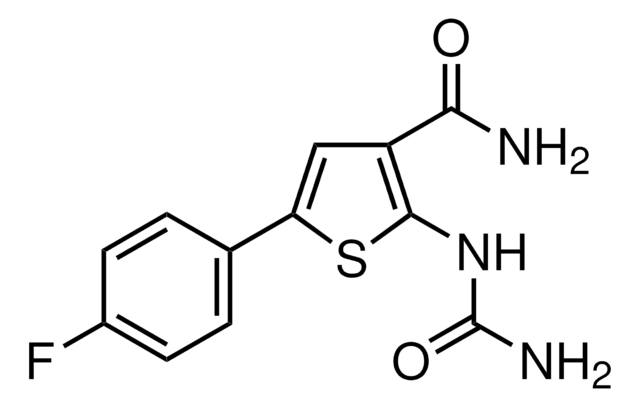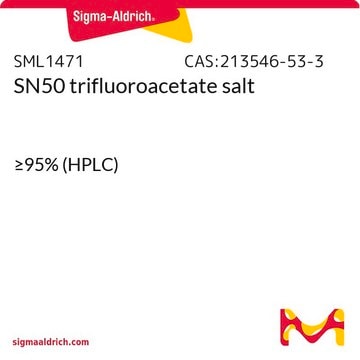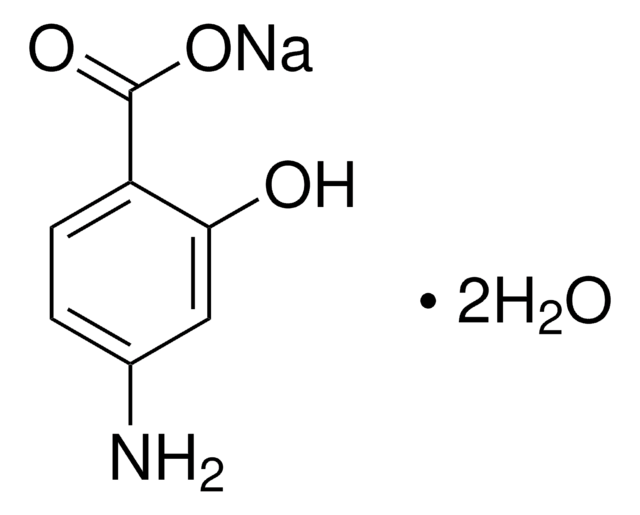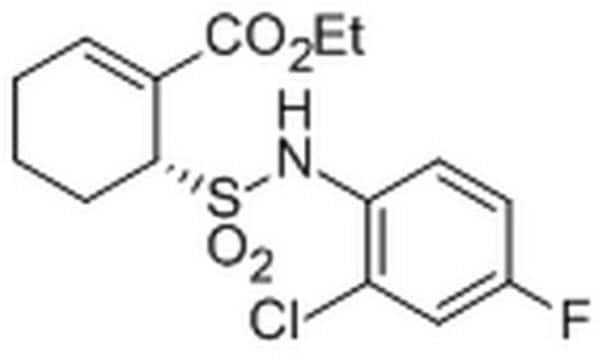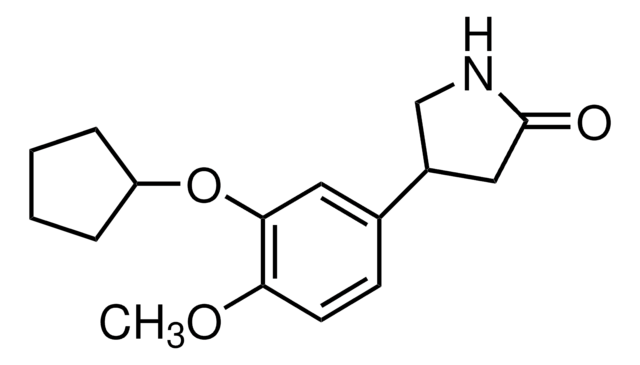J4455
JSH-23
≥98% (HPLC), solid
Synonym(s):
4-methyl-N1-(3-phenylpropyl)-1,2-benzenediamine
Sign Into View Organizational & Contract Pricing
All Photos(1)
About This Item
Empirical Formula (Hill Notation):
C16H20N2
CAS Number:
Molecular Weight:
240.34
UNSPSC Code:
51111800
NACRES:
NA.77
Recommended Products
Quality Level
Assay
≥98% (HPLC)
form
solid
storage condition
protect from light
color
off-white to gray-pink
solubility
DMSO: >10 mg/mL
shipped in
wet ice
storage temp.
−20°C
InChI
1S/C16H20N2/c1-13-9-10-16(15(17)12-13)18-11-5-8-14-6-3-2-4-7-14/h2-4,6-7,9-10,12,18H,5,8,11,17H2,1H3
InChI key
YMFNPBSZFWXMAD-UHFFFAOYSA-N
Application
JSH-23 has been used as a nuclear factor κB (NF-κB) p65 inhibitor.
Biochem/physiol Actions
JSH-23 is an inhibitor of NF-kB nuclear translocation. It inhibits LPS and cytokine-induced nuclear translocation of the p65 subunit of NF-kB as analyzed by EMSA and western blot. The compound displays modest potency (IC50 7.1 uM in RAW 264.7), but has the unique property that it does not affect IkB degradation or recovery. The compound dose dependently inhibits LPS induced expression of cytokines, COX2 and iNOS, and presumably binds to, or interferes with the NLS of p65.
Other Notes
Light and air sensitive.
Storage Class Code
11 - Combustible Solids
WGK
WGK 3
Certificates of Analysis (COA)
Search for Certificates of Analysis (COA) by entering the products Lot/Batch Number. Lot and Batch Numbers can be found on a product’s label following the words ‘Lot’ or ‘Batch’.
Already Own This Product?
Find documentation for the products that you have recently purchased in the Document Library.
Customers Also Viewed
L Shi et al.
Oncogene, 36(12), 1631-1643 (2016-11-22)
The coordination between cellular differentiation and the mesenchymal/stem transition is essential for both embryo development and neoplasia, suggesting a mechanistic link between these two major processes. In this work we show that miR-127, an embryo-expressing lung miRNA, was prominently induced
Macrophage TCF-4 co-activates p65 to potentiate chronic inflammation and insulin resistance in mice.
Xia Kang et al.
Clinical science (London, England : 1979), 130(14), 1257-1268 (2016-04-30)
Transcription factor 4 (TCF-4) was recently identified as a candidate gene for the cause of type 2 diabetes, although the mechanisms have not been fully elucidated. In the present study, we demonstrated that the TCF-4 transgene in macrophages aggravated high-fat diet
HMGB1 promotes the activation of NLRP3 and caspase-8 inflammasomes via NF-?B pathway in acute glaucoma.
Chi W et al.
Journal of Neuroinflammation, 12, 137-137 (2015)
Macrophage TCF-4 co-activates p65 to potentiate chronic inflammation and insulin resistance in mice.
Kang X et al.
Clinical Science (London, England : 1979), 130, 1257-1257 (2016)
Meibao Feng et al.
Molecular cancer, 15(1), 77-77 (2016-12-04)
Lipocalin2 (LCN2) is a secretory protein that is aberrantly expressed in several types of cancer and has been involved in metastatic progression. However, neither mechanisms nor the role that LCN2 plays in the metastasis of colorectal cancer are clear. LCN2
Our team of scientists has experience in all areas of research including Life Science, Material Science, Chemical Synthesis, Chromatography, Analytical and many others.
Contact Technical Service

